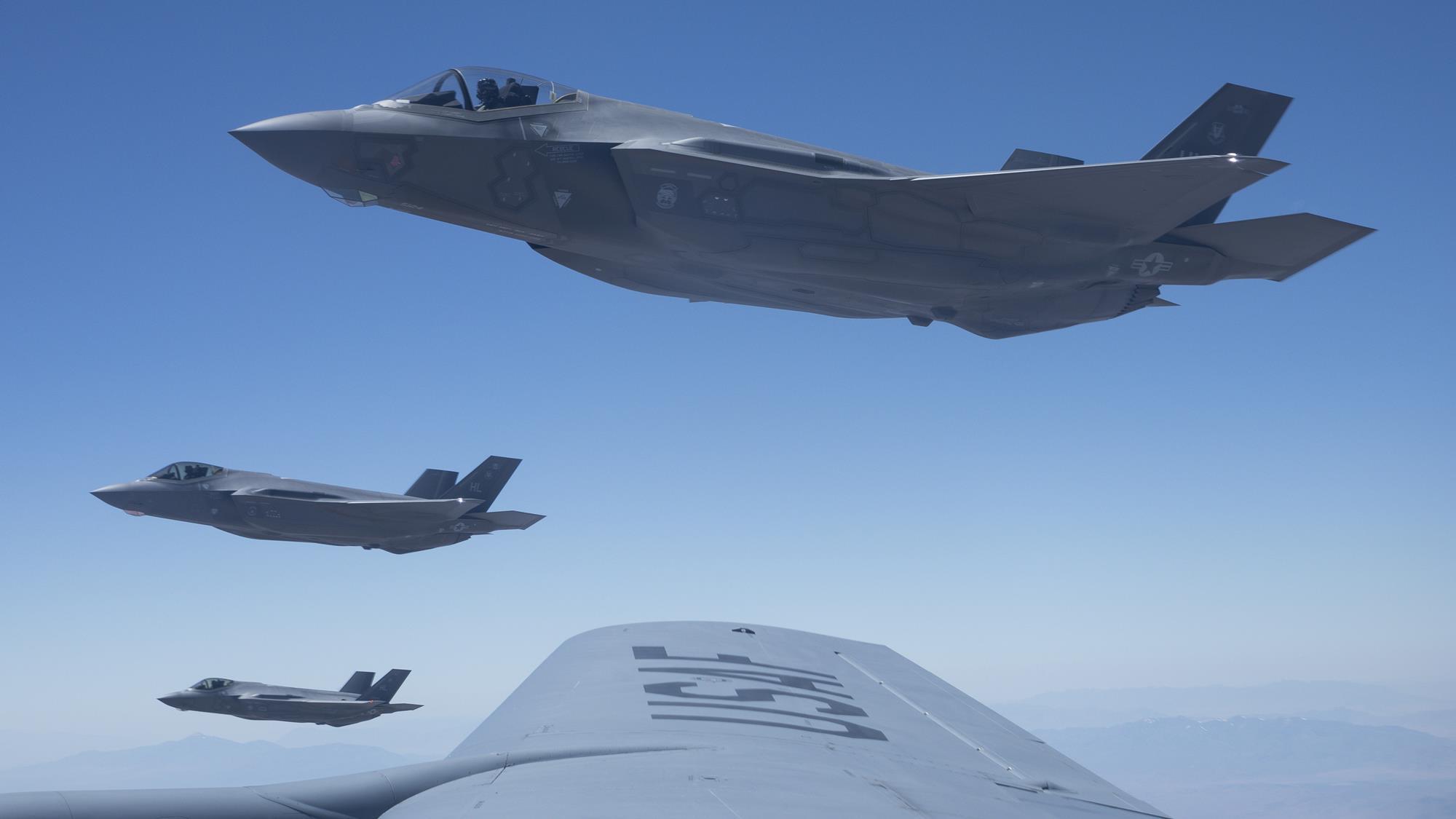
By John Reuwer, April 22, 2020
From VTDigger
Vermonters are divided in our opinions about whether the F-35 should be flying from Burlington International Airport. Even with the human suffering and damage to the economy we are experiencing as a result of the coronavirus pandemic, the Vermont Air Guard’s current 15 planes continue to fly overhead. According to Gov. Phil Scott, this is to fulfill their “federal mission,” which as near as I can tell is practicing for war abroad. Closer to home, this means generating harmful noise, sowing our atmosphere with pollutants from burning 1,500 gallons of jet fuel per hour for each plane at a time when we know air pollution weakens our lungs‘ ability to resist the coronavirus.
Vermonters seem evenly divided between support for these planes at BTV or opposition. The only hard numbers we have are from the Burlington city referendum of 2018, when voters decided 56% to 44% to ask the Vermont Air National Guard for a mission other than the F-35. While it is likely that residents of South Burlington, Williston and Winooski would vote against the planes in higher numbers, those living in areas not as directly subject to the crash risk and pollution would be more likely to vote for them.
While it is wonderful to feel our community come together in helping one another, if conditions imposed by Covid-19 worsen or confinement lasts for many months, our current spirit of cooperation will be hard to maintain. Our disagreement over the F-35’s stresses that spirit of cooperation. What exactly are we disagreeing about?
No one has called into question the Air Force’s own Environmental Impact Statement which lists the harms this plane is likely to do to our children, our environment, and our health. Our disagreement comes down to assessing whether the benefit of the plane is worth the cost. While jobs matter, creating employment through planes costing $100 million each and $40,000 an hour to fly is clearly not cost-effective. Instead, the most powerful reason we decide whether having the F-35 here is worth it depends on the story we tell ourselves about what makes us safe in the 21st century. And we have a choice about that story.
The first goes like this: War is a glorious adventure giving rise to our soldier heroes; America always wages war to protect freedom and democracy; and victory is worth any price. Our current fighter/bomber is a powerful symbol of this story. Whatever minor harm that is done to Vermonters is a necessary sacrifice we gladly make to keep us safe.
A second story says something very different: War leads to mass death and disability; it drains resources, destroys the environment, and may well be never-ending. It overwhelmingly damages civilians, either by intention or as “collateral damage,” and rather than making us safe, creates angry people who may become terrorists. The F-35 in particular cannot protect us against most modern military threats like nuclear ICBMs or cruise missiles, cyberattacks, or terrorist attacks. And war actually aggravates other real threats like pollution, climate change, and epidemics of viruses, while draining resources that could be used to protect us from those things.
Which of these two stories you tell yourself will likely determine your response to the 105 decibel roar of the F-35, to young children suffering learning impairments from the noise, or to the FAA telling us that over 6,000 people will have their homes labeled “unsuitable for residential living.” Following story No. 1, you think. “Ah, the sound of freedom. The least we can do is make sacrifices to give our brave warriors the very best.”
On the other hand if story No. 2 makes more sense, then you are likely to think, “How can they do this to the community? Why isn’t the Guard protecting us rather than harming us?” And “Why, when most nations are scrambling to deal with a major epidemic, would we Vermonters be practicing to kill people halfway around the world?”
How should we resolve this dilemma? I suggest we first ask, “Is the story I tell myself really MY story, or do I accept it mostly because of years or decades of hearing it repeated? What does my heart and my reason tell me is actually endangering us? Second, let’s open a wider dialog at City Council meetings and forums such as Front Porch Forum. Newspapers and online publishers could moderate civil dialogues. In this time of pandemic with no expiration date, we would do well to listen to one another’s fears and come to closer agreement about our future together.
John Reuwer, M.D. is a member of World BEYOND War’s board of directors and an adjunct professor of Conflict Resolution at St. Michael’s College in Vermont.








